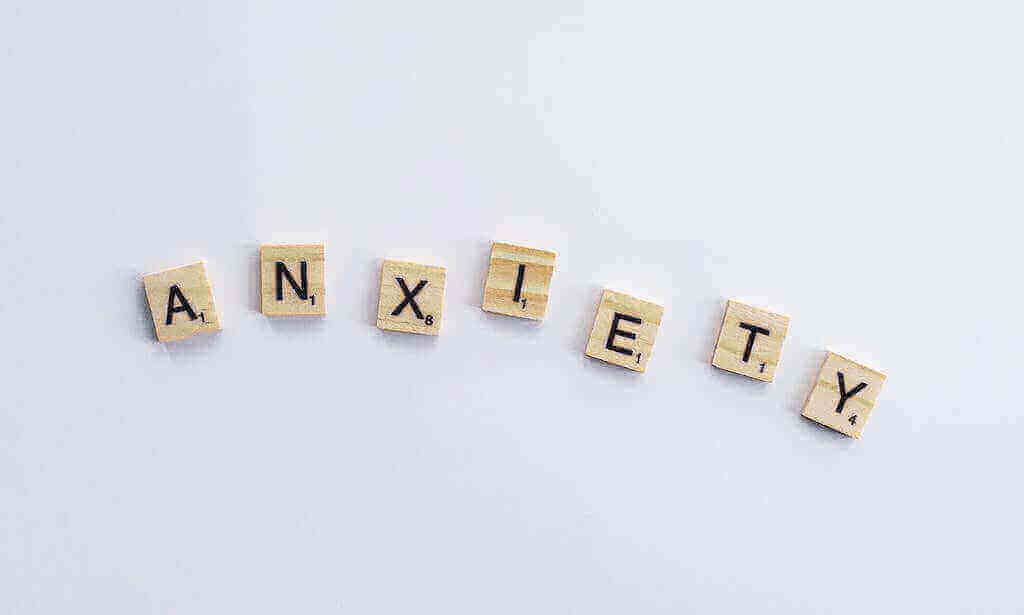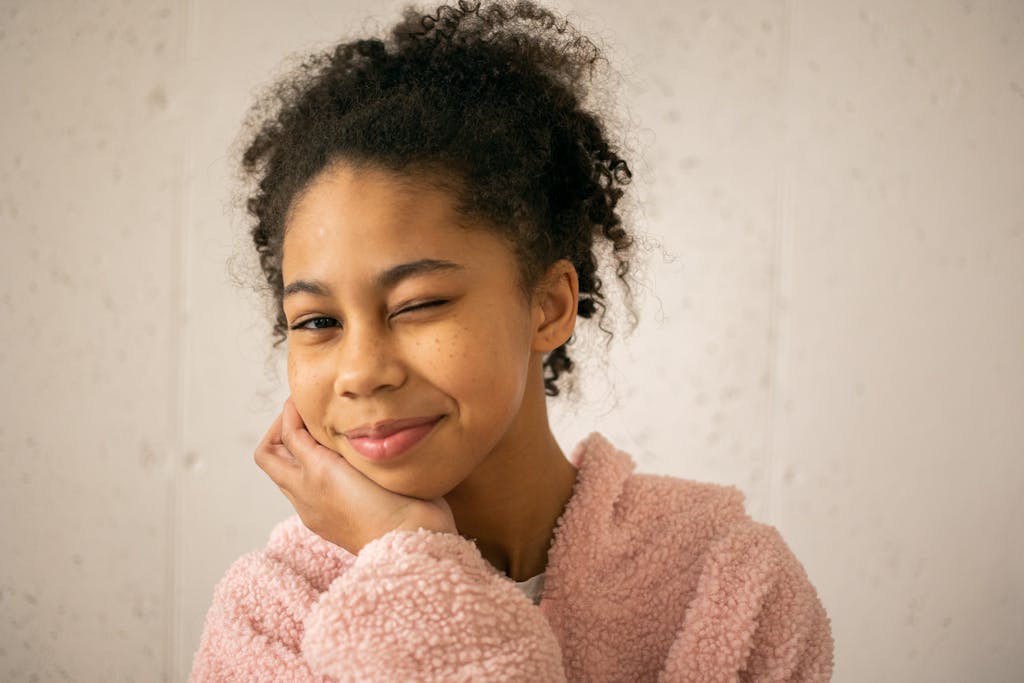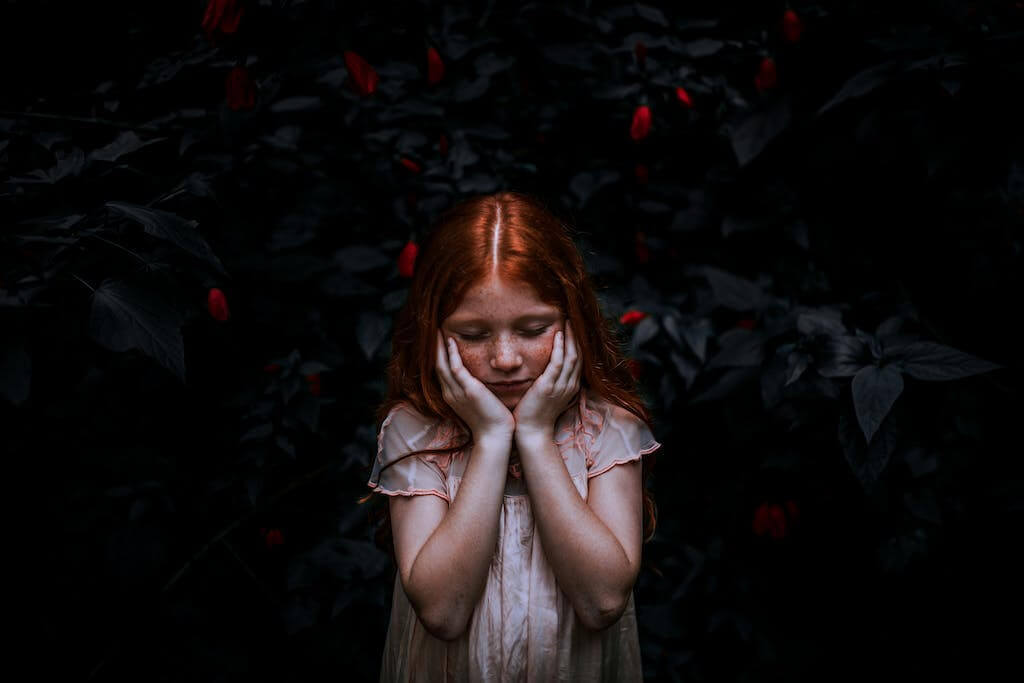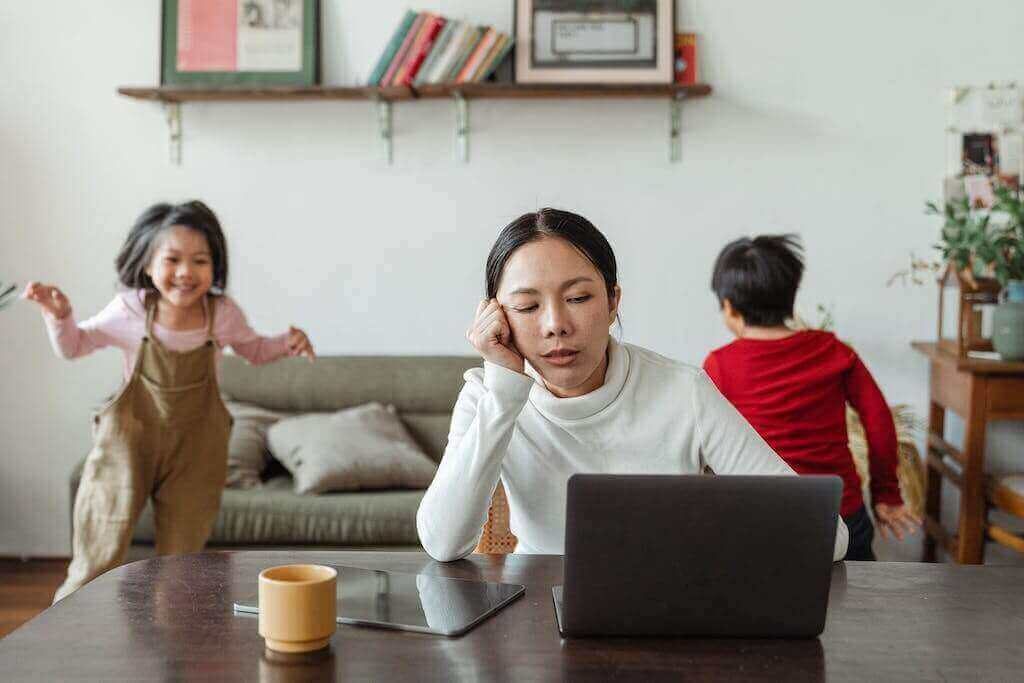Spotting the Signs: How to Identify Anxiety Symptoms in Children and Teens

Are you tired of dismissing your child’s anxiety as just “typical growing pains”? Well, fear not! Mosaic Reflections Therapy is here to help you differentiate between common childhood worries and the more severe condition of anxiety. Think of us as your own personal anxiety GPS – guiding you toward a better understanding of your child’s mental health. With our help, you’ll be able to recognize and address anxiety symptoms in young individuals like a pro. So, why wait? Let’s navigate this complex world of challenges, changes, and expectations together and make anxiety a thing of the past!
Understanding Anxiety in Youth
Did you know that being anxious is not just a grown-up thing? Oh yeah, it’s true! Even kids and teens can be anxious, and it’s more common than you might think. According to a study from the National Institutes of Health anxiety disorders affect a lot of young people out there. But don’t worry, it’s not all doom and gloom! The good news is that early detection can make a significant difference in their mental health trajectory. So, let’s be on the lookout for those signs and provide the support that our young ones need to cope with anxiety. After all, a little bit of humor and laughter can go a long way in chasing those anxious clouds away. Just don’t tell them that their dad jokes give you anxiety!

Subtle Signs of Anxiety in Children
Unlike adults, children may not be able to articulate their feelings of anxiety. As a result, symptoms can show up in various, subtle ways. Here are some indicators to watch for:
Changes in eating patterns, such as loss of appetite or binge eating.
Children who are experiencing anxiety might exhibit a sudden loss of appetite or start overeating and bingeing on food. They may also develop food aversions or become more selective about what they eat.
Difficulty concentrating on tasks or sudden drops in academic performance.
Anxiety can affect a child’s ability to focus and concentrate on tasks, resulting in a sudden decline in academic performance. They may also have trouble completing assignments on time or become easily distracted during class time.
Excessive worry about routine activities or new situations.
Children may exhibit excessive worry and fear about everyday activities or new situations. They may become anxious about social interactions, school, or family events. As a result, they may avoid these situations altogether, leading to isolation and withdrawal from friends and family.
Increased irritability or unexplained outbursts of anger.
Anxiety can also cause children to become more irritable and prone to angry outbursts. They may lash out at others or become easily frustrated with minor issues.
Physical symptoms like stomachaches and headaches with no apparent cause.
Anxiety can manifest in physical symptoms such as stomachaches, headaches, or other pain with no apparent medical cause. These symptoms may be a result of the child’s mind-body connection, and they may feel real to the child even though they are psychosomatic.
Disruptive Behavioral Symptoms
When children feel anxious, they might exhibit behaviors that interfere with their daily lives. Here are some common behaviors that children might display when they are anxious:
Avoiding social interactions or refusing to go to school.
Children who feel anxious might avoid social situations, such as playdates or parties because they feel uncomfortable or nervous around other people. They might also refuse to go to school because they are afraid of separation or have social anxiety.
Excessive clinginess or separation anxiety, particularly in younger children.
Young children who experience anxiety might become overly attached to a caregiver or parent. They might refuse to leave their parent’s side or become upset when they are separated from them.
Sleep disturbances, such as difficulty falling asleep or frequent nightmares.
Sleep disturbances are a common symptom among children who experience anxiety. They may have difficulty falling asleep or staying asleep throughout the night, causing them to wake up frequently. This can lead to a cycle of sleep deprivation that can affect their health and well-being.
Additionally, children who are anxious may experience nightmares or night terrors, which can be particularly distressing and disruptive to their sleep. It is important for parents and caregivers to be aware of these sleep disturbances and take steps to address them, such as establishing a consistent bedtime routine or seeking professional help if necessary.
Engaging in repetitive behaviors or obsessive-compulsive patterns.
Children who are anxious might engage in repetitive behaviors or rituals, such as checking and rechecking doors or washing their hands excessively. These behaviors can help them feel more in control or alleviate their anxiety temporarily.

Recognizing Emotional Signs in Adolescents
Teenagers might display different signs of anxiety as they contend with social pressures and an increasing desire for independence:
Expressing persistent worries about fitting in or meeting perceived expectations.
Teenagers may feel the pressure to conform to social norms or expectations set by their peers, family, or society. They may worry excessively about their appearance, academic performance, or social status, which can lead to feelings of inadequacy or insecurity.
Withdrawing from friends, family, and activities they once enjoyed.
Teenagers who are struggling with anxiety may experience a significant decrease in their social life. They may withdraw from friends, family, and activities they once enjoyed due to fear, worry, or stress. This behavior can lead to feelings of loneliness and isolation, which can further exacerbate their anxiety. They may feel as if they’re not good enough or fear being judged by others, which can worsen their overall mental health. If you notice your teenager is becoming more distant or avoiding social situations, it’s important to check in with them and offer support.
Experiencing excessive self-consciousness or fear of judgement in everyday situations.
Teens who are anxious may feel self-conscious about their appearance, behavior, or social interactions, which can trigger feelings of fear or worry. They may worry about being judged or criticized by others, leading to avoidance behaviors or social anxiety. These fears can have a significant impact on their daily lives, affecting their relationships with friends and family, school performance, and overall well-being. It’s essential to acknowledge these anxieties and provide support and guidance to help teenagers overcome their fears and build confidence in themselves.
Showcasing extreme sensitivity to criticism or becoming defensive easily.
Teenagers who are anxious may become defensive or hostile in response to criticism or feedback. This is because they may take it personally and feel attacked or vulnerable, even if the criticism is well-intentioned. As a result, conflicts with others can arise, making it difficult for them to communicate effectively. It’s essential to approach teenagers with anxiety in a non-judgmental and compassionate way, while also being mindful of how you offer feedback. By doing so, you can help them feel more understood and supported, and ultimately, improve your relationship with them.

Supporting Children and Teens with Anxiety
Recognizing the symptoms is the first step. The next is to seek professional help. At Mosaic Reflections Therapy, Eleena Hardzinski, LMFT, offers a compassionate and professional approach to child and teen therapy through convenient Telehealth services. Whether it’s Child Therapy for emotional and behavioral challenges or Teen Therapy for stress and relationship issues, support is tailored to the individual needs of the young client.
Encouraging Self-Sufficiency
Therapy isn’t just about getting rid of those pesky symptoms. It’s about becoming self-sufficient and knowing how to kick anxiety and depression in the butt. We’re talking about finding your inner superhero and unleashing your full potential. So let’s get to work, because a happy and fulfilling future is waiting for you on the other side!

Scheduling a Consultation
Eleena Hardzinski, LMFT at Mosaic Reflections Therapy encourages scheduling a free consultation to explore the benefits of therapy and to start on the path to improved mental health for children and teens.






